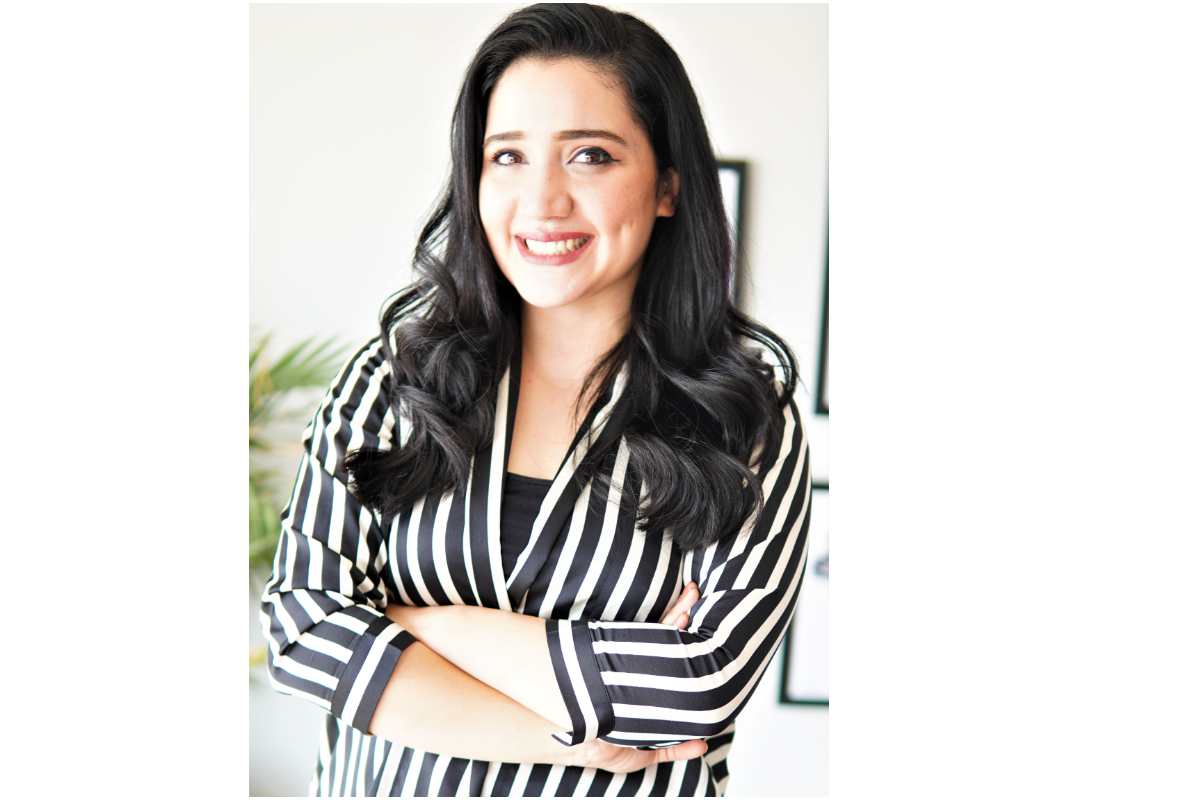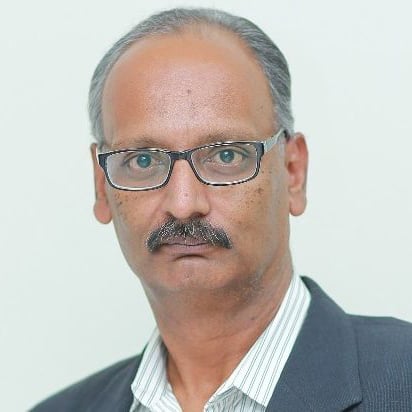
Making Growth Accessible to All
KARACHI: Building and operating a business in an emerging market is always a challenge but, especially for women entrepreneurs, who have been held back by decades of systemic prejudice and injustices, said Meenah Tariq, co-founder and chief executive officer (CEO) of Metric, a venture capital-funded fintech, automating accounting for the Small and Medium Enterprises (SMEs) and startups in the emerging markets.
“Safety and security, as well as mobility, remain massive challenges for women. Financial freedom for women is severely limited too. Overall, very few women get access to external funding and a disproportionately large number of women entrepreneurs get exploited, compared with men in their quest for funding,” she added.
Meenah Tariq has also been a partner at Karavan, a Middle East-based fund focused on early stage startups in Pakistan. She has supported more than a thousand entrepreneurs over the last decade, including directly training 700+ business owners, across a wide variety of industries and geographies, in Pakistan, Nepal, Iraq and Bangladesh.
She has been designing and implementing programmes to practically support women entrepreneurs, encourage entrepreneurial mindsets in young people and equip the entrepreneurs with the business acumen required to scale high impact businesses and the SMEs, with organizations including the World Bank, Department for International Development (DFID) and the US Agency for International Development (USAID). Previously, she was the Head of Strategy and Accelerator at Invest2Innovate Pakistan.
Following are the excerpts of an exclusive talk with her:
Have you achieved what you desired? What are your future plans?
I dreamt of being the CEO of a high-growth startup, at a time when I did not have any clue as to how this would come true. So for me, being the co-founder of Metric is definitely a huge achievement. There was also a time when I really wanted to break into the venture capital space and I was able to do this when I became a partner at Karavan.
Over the last five months, Metric has been downloaded by more than 100,000 businesses across 90 countries, making us a viral sensation. We have not marketed in these countries. We honestly did not even expect this level of success in such a short period of time and were absolutely blown away by how the market responded. This was testament to how deep and how critical the problem of financial management for small businesses is, and was a phenomenal achievement for our whole team. Our focus now is to continue to support entrepreneurs globally. Our aim is to become a simple and integral part of how businesses are built — just like when someone decides to start a business they will decide on a name, then make an Instagram or Facebook page for it to start marketing.
People should be able to download Metric and start to use it to manage their finances and accounting from Day 1. We want Metric to be an easy and simple tool to use, through which business owners with no accounting background or knowledge, especially those scared of numbers, would be able to grow their businesses.
Do you think women entrepreneurs get the same attention, compared with men?
I think there are deeper biases at play for sure. It is not about attention — it is about support, opportunities and actual money, which women get less, compared with men. Globally, 2 per cent of venture capital funding goes to women-led businesses. The investors still consider women as a higher risk. They are not ‘allowed’ by family members to risk capital, or even time. Even though we see an increasing number of women in universities, which is not reflected in the entrepreneurial pipeline.
A lot more effort needs to be put in and affirmative action needs to be taken to try to level the playing field for not just women but anyone that belongs to a marginalised group.
How are you helping women, especially those who are also taking care of their children?
At Metric, we have a very intentional and deliberate policy of no gatekeepers. More than 40 per cent of our workforce are women and we continue to ensure that they are given a fair chance always. We have an on-site kids’ room and a children-friendly work space to let the parents bring their children along.
We also have paid maternity and paternity leaves, as well as monthly period leaves. We allow women with small children to travel with kids as needed and also cover their costs. From day one, even pre-funding, we ensured health coverage for all the employees and their families.
How can women entrepreneurs become successful, while taking care of their families?
This is a very difficult question to answer because it is extremely subjective. I am very privileged to have the kind of education, background, work experience, family support and a very encouraging and equally-contributing partner that allow me to be able to manage my work and family at the same time without harming either.
However, I do believe that the way our economic reality is changing, soon women working and running businesses will not be a choice but a requirement. In this scenario, supportive families and supportive life partners will become a necessity and not a “nice-to-have”.
We cannot expect women to work like they do not have a family and to manage their households on their own as if they do not have external jobs also.
Being in such an important position, how do you manage your personal and professional lives?
For me right now there are very few boundaries between my personal and professional lives. This is because my co-founder is also my husband and we have a three-year-old daughter together. So, it feels like we have two startups at the same time. We ensure we take breaks that allow us to reset and renew our energy. We love to travel, and save up to do this, instead of spending on other things.
We believe in working hard and playing hard! It is important to take care of your physical and mental health, because doing something phenomenal that changes the world is always going to be a difficult thing to do. I started exercising with a trainer recently to make sure I was working on my stress management.
Supplements such as magnesium also help me with this. It is critical to keep an eye on the end goal and to zoom out to realise and be grateful for how far we had already come.
Where do you see yourself in the next five years?
I see myself, along with my co-founders and team, building Metric as a global tech company, servicing millions of small business owners across the globe.
Metric will become a household name, helping businesses grow to their full potential. I hope to have learnt a lot more — how to grow a passportable product from one massive emerging market into other frontier market, how to build tech that is able to hold its own in front of international products and how to be a good leader for a fast growing and ambitious team.
How do you see the future of Pakistan’s startup ecosystem and the women’s role in it?
The participation of women in the entrepreneurial ecosystem is critical. Even now, a large number of women run entrepreneurial ventures as side businesses, or run businesses out of necessity. But their businesses do not grow to their full potential because of a lack of entrepreneurial education, family and community support, growth opportunities such as access to markets and a dearth of financial resources.
To add to this, a higher risk of exploitation and personal risk also exist. These small businesses, if allowed to flourish, would seriously contribute to the country’s economy and the wellbeing of the society, as a whole.
I am extremely bullish on Pakistan’s startup space. We have a large number of opportunities wide open due to the sheer number of challenges and the issues we still have as a frontier market. We have a booming, young, dynamic population, which is tech savvy and spots new innovations fast. We have financial opportunities increasing, as more money flows to our market from interventional funds that have begun to see our exciting potential. As long as the political and democratic situation remains stable and certainty returns, our youth is passionate and resilient and will continue to work on the ideas and innovations that will change the course of the world.
Highlight your struggle, success and setbacks throughout your journey?
For me, entrepreneurship is about upward mobility and personal accountability; both values that are very close to my heart. Making your own life better, while at the same time creating value for the sector and the society you are in. Taking charge instead of waiting for ‘others’ to provide what you need.
I saw very early on that even my one-person Henna business meant the circulation of money in the economy, all the way down to the farmer growing Henna leaves.
I believe entrepreneurship is an economic force that has the power to change individual lives, societies and countries and this is my ‘why’ for doing all the work I have done in the last decade, in service to the cause of entrepreneurship.
Catch all the Economic Pulse News, Breaking News Event and Latest News Updates on The BOL News
Download The BOL News App to get the Daily News Update & Live News.








 Read the complete story text.
Read the complete story text. Listen to audio of the story.
Listen to audio of the story.